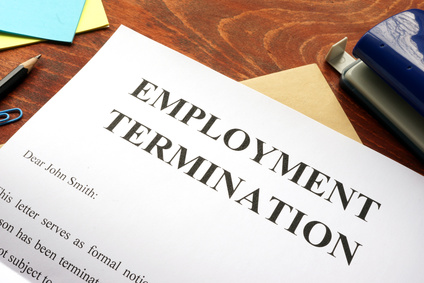 Help! I’ve lost my job!
Help! I’ve lost my job!
It can be a real worry when you’re not earning but still have bills to pay. If you’ve been forced to leave your job through redundancy or unfair / constructive dismissal, you can claim benefits while you’re looking for work.
You may be entitled to receive new-style Jobseekers’ Allowance (JSA). You might also quality for Universal Credit (UC) as well or instead.
However, if you’ve received a lump sum payment as part of a settlement agreement with your employer, you might be wondering how it affects your right to claim these benefits.
This article explains more…
What is Job Seeker’s Allowance?
JSA is an unemployment benefit you can claim while looking for work.
You may have to wait up to 7 days after applying for your JSA to start, and up to 2 weeks after that to get your first payment. Your first payment may not be for the full amount.
After your first payment, full payments will usually be made fortnightly directly into your bank, building society or credit union account.
If you are no longer looking for work (unless there’s a good reason), your JSA payments will stop.
How much JSA will I get?
The amount of JSA you’re entitled to claim depends on your age, income, savings, and any other benefits you may receive:
- Up to age 24 = up to £67.20 per week
- 25 or over = up to £84.80 per week
- Couples (both aged over 18) = up to £133.30 per week
(Figures valid 2023/24)
As with many benefits, the situation is more complicated than that. For example, there are three different types of JSA.
Scroll down to read more…

“Chris Henshall was a constant calming and reassuring presence, he definitely gave me the confidence I needed to present my case. I certainly couldn’t have got through the day without him.”
Simone
Which type of JSA will I get?
Most people can claim the ‘new style’ JSA for up to 182 days. Can you answer ‘yes’ to all these questions?
- Are you aged between 18 and the State pension age?
- Do you live in the UK?
- Do you have the right to work in the UK?
- Are you NOT in full-time education?
- Are you available and able to work, but not currently working (or working less than 16 hours per week on average)?
- Can you prove that you are actively looking for work?
- Have you worked as an employee paying Class 1 National insurance contributions/credits in the last two-three years?
- Have you been self-employed as a share fisherman or volunteer development worker paying Class 2 National insurance contributions? (Other self-employed occupations don’t qualify.)
Note that, if you have a partner who has income and savings, it doesn’t affect your JSA claim.
One more question…
- Are you entitled to the Severe Disability Premium (or were you entitled to it within the last month and you’re still eligible)? If yes, you can apply for contribution-based JSA or income-based JSA
“The team was very kind, considerate and understanding about my situation, that it was a really stressful time for me, and that I couldn’t always get things done during the day. I really appreciate all their help. They got my head above water.”
Laura M
What is Universal Credit?
Universal Credit is a payment to help with living costs for people who are out of work or on a low income. It’s paid monthly (or twice a month for some people in Scotland and Northern Ireland).
You might be entitled to receive UK as well – or instead of – ‘new style’ JSA.
What if I apply for Universal Credit?
Can you answer ‘yes’ to all these questions? If yes, you might be eligible for Universal Credit.
- Are you aged 18 or over (there are some exceptions if you’re 16 to 17)
- Are you or your partner under State Pension age?
- Are you single, or have a partner who works for less than 24 hours a week on average?
- Do you and your partner have £16,000 or less in savings between you?
- Do you live in the UK?
Note that, if you live with a partner who has income and savings, this WILL affect your claim for Universal Credit (unlike JSA above).
 About us: At Paul Doran Law, we specialise in employment law – this includes settlement and severance matters as well as claims about equal pay, discrimination, unfair or constructive dismissal, and unpaid wages or holiday pay.
About us: At Paul Doran Law, we specialise in employment law – this includes settlement and severance matters as well as claims about equal pay, discrimination, unfair or constructive dismissal, and unpaid wages or holiday pay.
We’re on your side: We only act for employees who find themselves in a dispute with their employers.
About you: Whether you work for a multi-national corporation, public sector, private sector or small employer, we can help. We act for clients in Northern Ireland, England, Wales and Scotland.
Easy payment options: You’ll have a choice of ways to fund your claim, including no-win, no-fee. Often, your employer will pay our fee.
What next: Give us a call today for friendly, clear and honest advice about your case. The initial consultation is FREE and with no obligation.
How much Universal Credit will I get?
Universal Credit is based on your earnings. It’s assessed and paid monthly (sometimes twice a month in Scotland and Northern Ireland), so the amount you receive can vary.
It comprises a standard allowance:
- Under age 25 = up to £292.11 per month
- 25 or over = up to £368.74 per month
- Couple (both aged under 25) = up to £458.51 per month
- Couple (one or both aged 25 or over) = up to £578.82 per month
(Figures valid for 2023/24)
You may receive extra payments if you:
- Have children
- Have a disability or health condition
- Are a carer
- Need help paying your rent
“I was broken, but Kate Reah was not only my legal advisor but my emotional support and wise counsel throughout the long 18-month process of getting justice.”
Lorraine J

Scroll down to read more…
Means-tested benefits
If you’re paid a lump sum in the form of a negotiated settlement, it might affect your entitlement to means-tested benefits, such as:
- Income-based job-seekers allowance
- Universal credit
- Income-related employment support allowance
- Housing benefit
- Income support
- Pension credit
Your entitlement to these benefits will not be affected you or your partner have £6,000 or less in savings after the lump sum is paid.
If you or your partner have between £6,001 and £16,000 in savings after the lump sum has been paid, the first £6,000 is ignored. The rest is treated as if it gives you a monthly income of £4.35 for each £250 or part of £250.
If you or your partner have over £16,000 in savings once the lump sum has been paid, you will not be entitled to any of the means-tested benefits until your savings drop below £16,000. However, you may still be entitled to non-means-tested benefits.
What is a settlement agreement?
The ‘settlement’ is the term for when a legal case is resolved, whether that happens before or after court action. Usually, it’s an amount of money that is to be paid to one party in return for agreeing to settle the dispute.
The ‘agreement’ part is the legal documents signed by both parties confirming what each party is agreeing to do.
In Northern Ireland, a settlement agreement is known as a ‘compromise agreement’ – that used to be the name in other parts of the UK too.
How are my benefits affected by my settlement agreement?
If you’ve been offered a settlement agreement by your employer in return for agreeing not to take them to the employment tribunal, they’ll pay you a lump sum that’s made up of two components.
The contractual element is the amount you are entitled to receive under your contract of employment. Usually, this is NOT taken into account by the DWP when they calculate your benefits.
The non-contractual element is anything you receive over and above the basic contractual payment, sometimes known as compensation. The DWP will treat this as savings, and WILL take it into account by when they calculate your benefits.
The rules and regulations on benefit entitlements change constantly. For up-to-date advice, please contact your local Benefits Office or Job Centre adviser.
For help negotiating a settlement agreement with your employer, please contact us!
Scroll down to read more…

As you can no doubt tell, it’s a complex area and we can’t explain all the options here. So, if you’ve been offered a settlement agreement and you are unsure what to do, please give us a call to discuss your specific circumstances.
Further reading
For more information, please see our related articles:
- Does a settlement agreement affect your right to claim benefits?
- What is a settlement agreement?
- How do I get a settlement agreement?
- Can I get a payout for leaving my job?
- How to negotiate an exit package
- Can I take another job during the redundancy notice period?
- Can my last employer stop me taking a job?
- How do I resign from my job?
These links tell you more about some of the most common scenarios, and we hope you find our information useful. But every situation is different, so do give us a call to discuss your own case. We’ll be happy to help. Remember, the initial conversation is free, with no obligation to proceed.
Need help?
For a free initial review of your case, call 0808 168 7288 or complete a Free Online Enquiry.
We have already helped thousands of people to win millions of pounds in compensation.
See what they say >
You have a choice of ways to pay, including ‘no win, no fee’.
Browse funding options >

